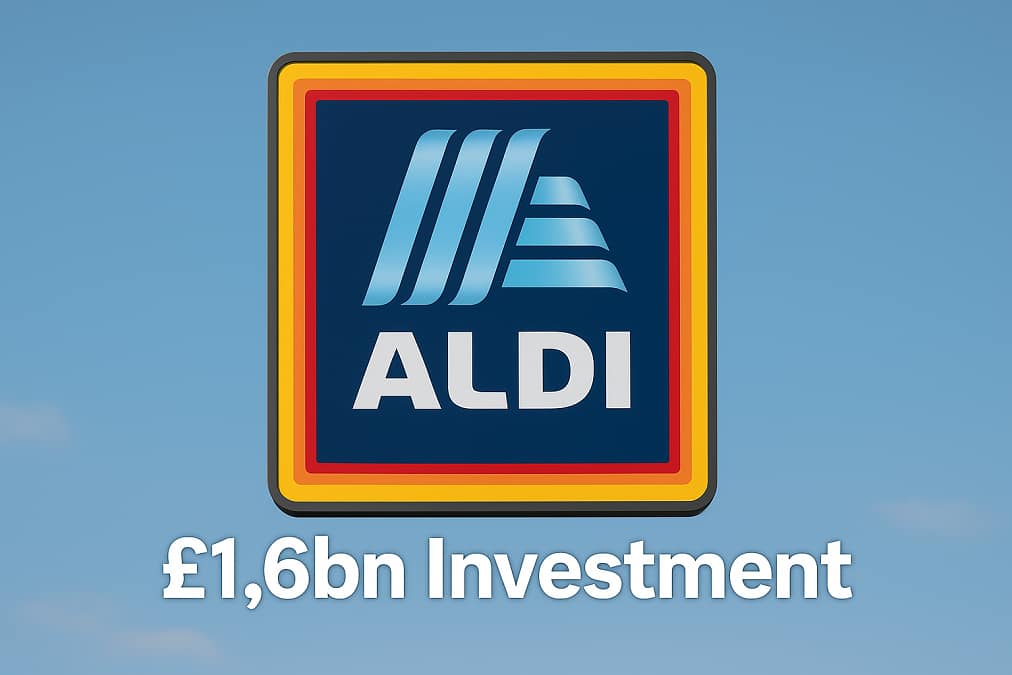The competition battle in Britain’s supermarket sector has intensified, as Aldi announced a sweeping £1.6 billion investment to accelerate its expansion across the UK. The German-owned discount retailer revealed plans to open 80 new stores over the next two years, pushing forward with its ambition to reach 1,500 locations nationwide.
The move comes as Aldi reported total UK and Ireland sales of £18.1 billion for 2024, up from £17.9 billion the previous year. However, operating profits dipped by around 20%, falling from £552.9 million in 2023 to £435.5 million in 2024. The company attributed this decline to increased spending on lowering prices, upgrading stores, and boosting staff pay.
Despite this squeeze on profit margins, Aldi has emerged as the UK’s cheapest supermarket, regaining the top spot from Lidl according to consumer group Which?’s August analysis. This price-focused strategy has been at the heart of what some analysts are calling the ongoing “trolley wars,” as major retailers battle to win over cost-conscious shoppers.
Major new sites secured
Aldi has already begun laying the groundwork for this expansion including a recent hiring surge as it accelerates its UK expansion. Wolverhampton Council has confirmed the sale of the former Nelson Mandela House site in Pendeford to Aldi for £1.5 million, paving the way for a new branch. In Shropshire, construction is underway on a new store at the former Shropshire Star offices and printworks in Ketley, following planning approval granted in October 2024. This site will also include a large warehouse and office unit, expected to open next year.
These developments are part of Aldi’s wider strategy to establish a presence in hundreds of communities that currently lack an Aldi store. Giles Hurley, Aldi’s UK and Ireland chief executive, said the company is “more determined than ever” to meet that demand.
“Since we opened our first UK store over 35 years ago, we’ve brought high-quality, affordable groceries to almost 800 towns and cities, but there are hundreds more communities that don’t have an Aldi nearby,” Hurley stated. “That’s why we’re investing a record £1.6 billion over the next two years, to bring Aldi prices closer to millions more customers.”
Jobs and pay on the rise
Alongside its expansion, Aldi launched a recruitment drive in August for 350 new apprentices, with local vacancies advertised in areas such as Oldbury and Shrewsbury. This comes as the supermarket raised its minimum pay for store staff to £13 an hour from the start of this month — significantly above the UK’s national minimum wage of £12.21 for workers aged over 21.
Hurley noted that “shoppers are still finding things difficult,” reinforcing Aldi’s pledge to remain “laser focused” on keeping its prices low while rewarding its workforce.
A sector locked in fierce competition
Aldi’s aggressive growth plan underscores the intense competition gripping the UK grocery market. Rival supermarkets have been cutting prices to retain customer loyalty amid the ongoing cost of living pressures. Industry observers say Aldi’s decision to prioritise affordability over short-term profit growth could further intensify the price war, putting pressure on competitors to follow suit.
While its profitability has temporarily dipped, Aldi’s willingness to absorb costs in pursuit of market share highlights its confidence in long-term growth prospects. By blending investment in new sites, recruitment, and pay rises, Aldi appears set on consolidating its place at the forefront of the UK’s value-driven retail landscape.




